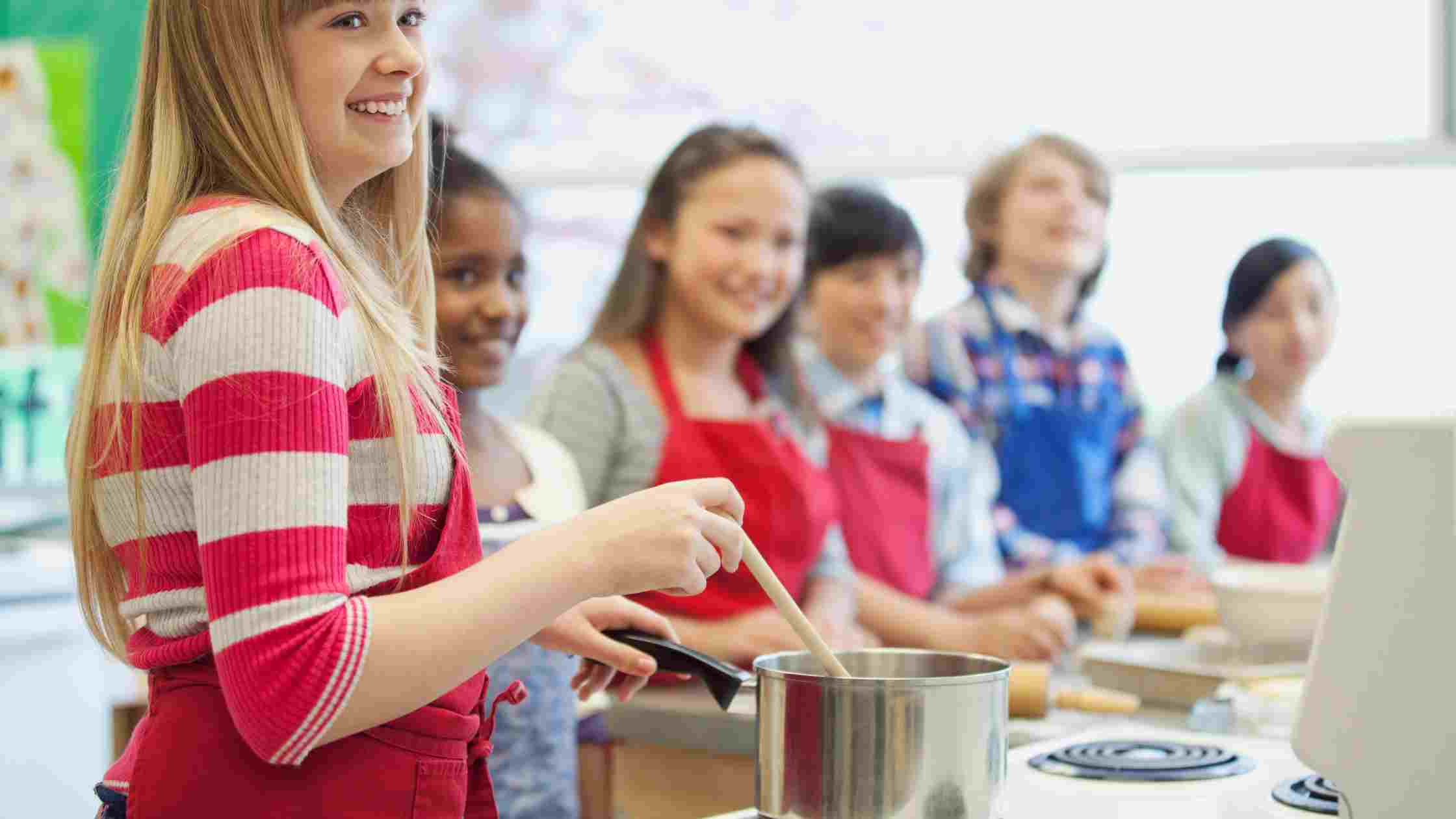
7 Reasons Why Cooking Should Be Taught in Schools
Have you ever met a teenager who doesn’t know how to boil water? I have—and not just one. It’s far more common than you’d think. And it always makes me ask: Why aren’t we teaching kids how to cook in school?
We teach math, science, history, and literature—all important subjects. But what about cooking? What about real-life skills that affect health, budget, independence, and even creativity?
Cooking should be taught in schools. Not as an afterthought. Not just for those who “choose” home economics. It should be part of the core curriculum.
I say this not just as someone who loves cooking, but as someone who’s watched people struggle with basic nutrition and food prep because no one ever taught them how. It’s time we fix that.
Let’s dive into 7 powerful reasons why cooking should be taught in schools, and why it’s a skill every child should carry into adulthood.
1. Cooking Promotes Healthy Eating Habits
When students learn to cook, they learn to eat better.
It’s that simple.
Teaching cooking in schools is one of the most effective ways to fight childhood obesity and poor nutrition. Kids who cook their own meals are more likely to:
- Eat more fruits and vegetables 🍎🥦
- Understand what’s really in their food
- Avoid processed meals loaded with salt and sugar
I’ve seen it happen. A student who learned to make smoothies in class started making them for breakfast instead of sugary cereal. That’s real change.
2. Cooking Builds Life Skills and Independence
Why is cooking important to teach in schools? Because it’s a basic life skill.
How can we send teenagers off to college or into adulthood without knowing how to feed themselves? It’s like sending them into a forest without a map.
Cooking teaches:
- Time management
- Organization
- Responsibility
I’ve seen kids beam with pride after baking their first loaf of bread. They feel empowered. That confidence? It’s priceless.
3. Cooking Strengthens Math, Science, and Reading Skills
This might surprise some people, but cooking in schools actually enhances academic learning.
Think about it:
- Measuring ingredients uses math.
- Watching bread rise involves science (hello, yeast and fermentation!).
- Following a recipe boosts reading comprehension.
I’ve watched students improve in math just because they started cooking. Suddenly, fractions made sense when you’re cutting a recipe in half. That’s applied learning at its best.
4. Cooking Encourages Creativity and Problem Solving
Not every kid is going to love algebra. But many will light up in a kitchen.
Cooking in schools gives students a chance to be creative. They can try new flavors, mix ingredients, and invent their own recipes. And when things don’t go as planned? They learn to adjust. To adapt.
That kind of hands-on problem solving builds resilience. I once had a student burn an omelet, laugh, and say, “Okay, next time I’ll turn down the heat.” That’s growth.
5. Cooking Teaches Cultural Appreciation and Diversity
Food is deeply tied to culture. And what better way to teach diversity and inclusion than through the lens of cooking?
When students cook dishes from different cultures, they learn about:
- History
- Traditions
- Family and community values
I’ve watched kids proudly share family recipes in class, feeling seen and valued. Teaching cooking in schools builds bridges between cultures—and that’s something we need more of.
6. Cooking Supports Mental Health and Mindfulness
Cooking is more than just preparing food. It’s an act of care. It’s therapy for some. It’s meditation for others.
In schools, where stress and anxiety are on the rise, cooking can be a calming activity. It’s tactile, sensory, and rewarding.
- The smell of freshly baked muffins.
- The rhythmic chopping of vegetables.
- The joy of plating a dish you made yourself.
These little moments matter. Cooking in schools gives students a healthy outlet for emotions—and a way to take care of themselves and others.
7. Cooking Prepares Students for the Real World
At the end of the day, what is the point of school?
To prepare students for life.
And life involves eating. Every. Single. Day.
Whether a student grows up to be a teacher, engineer, artist, or parent, they’ll need to cook. Teaching this in school ensures that no one leaves without this essential survival skill.
I’ve seen too many adults rely on fast food or frozen dinners because they never learned to cook. We can break that cycle—starting in the classroom.
Cooking Isn’t Just an Elective—It’s Essential
So let’s ask the question again: Why should cooking be taught in schools?
Because it changes lives.
Cooking should be taught in schools because it teaches health, independence, creativity, academics, culture, and life preparedness—all in one subject. It’s hands-on. It’s engaging. And it’s incredibly valuable.
If we want students to thrive in the real world, we need to equip them with more than textbooks. We need to teach them how to nourish their bodies, manage their time, and connect with others over food.
Cite this article
You can copy and paste your preferred citation format below.
Martin, L. & Arquette, E.. (2025, May 1). 7 Reasons Why Cooking Should Be Taught in Schools. Coursepivot.com. https://coursepivot.com/blog/7-reasons-why-cooking-should-be-taught-in-schools/



